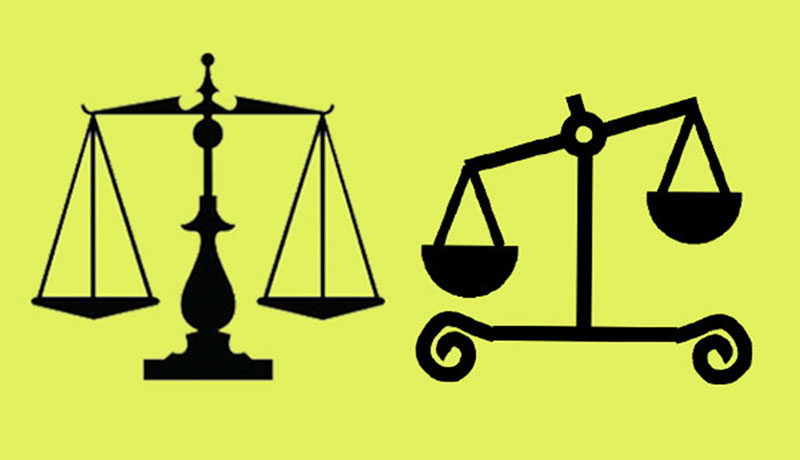Stop Being Judgmental and Change Your Life


Story: But I have five (Source: Google Baba )
A teacher teaching Mathematics in a class of 6-year-olds asked a boy named Adi. Adi, if I give you two mangos and another two mangos. how many mangoes will you have?
He answered, “5 mangoes”.
 The teacher was surprised by his reply but she tried again. Now this time she uses her fingers to make him count with her.
The teacher was surprised by his reply but she tried again. Now this time she uses her fingers to make him count with her.
“Ok Adi, look if I give you One, Two. Two mangoes and another one-two. Two mangoes. How many mangoes will you have?”
He again answered, “five mangoes!”
This time she gets annoyed by his answer but she controlled her anger and remembered that his mother once told her that he likes strawberries. So, she tried this.
“Ok, Adi If I give you two strawberries and another Two strawberries. Now, how many strawberries do you have?”
“Teacher, 4 strawberries”
 She felt relieved that he is back on track. So, again she asked him.
She felt relieved that he is back on track. So, again she asked him.
“Now tell me, Adi, If I give you two mangoes and another two mangoes. how many mangoes do you have?”
He answered “teacher, Five mangoes”
The teacher outburst in anger “How can you have five mangoes if I give you four mangoes?”
“Teacher, because One mango I have one in my bag”
Complete silence. The teacher calms down and regrets her anger.
Moral of the Story:
 Two sides to every story. Never judge others. We should not decide for others without knowing their point of view. We decide based on what is logically right i.e., what is the obvious answer and didn’t try to know the practical rightness i.e., what is the actual truth?
Two sides to every story. Never judge others. We should not decide for others without knowing their point of view. We decide based on what is logically right i.e., what is the obvious answer and didn’t try to know the practical rightness i.e., what is the actual truth?
What Is the Meaning of Being Judgmental?
Oxford English Dictionary describes the word Judgement as – ‘the ability to make considered decision or to come to sensible conclusions.
From our childhood, we are taught to judge things like moral/immoral, good/bad, ethical/unethical etc. Moreover, in our surroundings too, we find our parents, teachers, neighbours, friends etc. make a judgement about a different situation. We learn that ‘we should always speak the truth’, and ‘stealing is bad’ and such thoughts become an integral part of our lives.
Based on the above knowledge, as we grow up, we take bigger and more important decisions in our lives related to our education, career, choosing a life partner etc. Somewhere during our growing up years, apart from learning and making sound judgements, we fall into the trap of becoming judgmental too. Certain comments like ‘boys don’t cry’, ‘girls are more emotional’, ‘no pain no gain’, and ‘everything is fair in love and war’ becomes our limiting beliefs and we become judgmental about people around us.
Judgmental people rush to form their views not based on facts but on perceptions. It is based on stereotyping people. There are three sides to a story – your side, my side and the truth. Being judgmental means sticking only to my side. When we pass judgment, we often transmit our insecurities, fears, and disappointments to others. This type of behaviour can ruin friendships and cause conflict in personal as well as professional relationships.
Interestingly, we are not only judgmental about others but also about ourselves. On one side, it is good to make a judgment about any situation and make a decision, but on the other side, when we are changing our perception (happy / not happy) based on the feedback of others and without giving due weightage and understanding, it is dangerous but the majority of us are living in this way!! For Example:
 In India, it is very common that a person who speaks English is considered to be intelligent and a person who speaks Hindi has to prove their worth! The same is true for the skin of the colour. A woman whose skin is fair is considered to be beautiful in comparison to a lady whose colour is wheatish! Even a film actor who is very popular among the masses becomes a God-like figure and all their habits like smoking, drinking, cheating, fraud, womanizing etc. are put on the back burner!
In India, it is very common that a person who speaks English is considered to be intelligent and a person who speaks Hindi has to prove their worth! The same is true for the skin of the colour. A woman whose skin is fair is considered to be beautiful in comparison to a lady whose colour is wheatish! Even a film actor who is very popular among the masses becomes a God-like figure and all their habits like smoking, drinking, cheating, fraud, womanizing etc. are put on the back burner!
Why We are Judgmental and why it is important NOT to be Judgmental
In our day-to-day life, we are constantly involved in making evaluations and judgements. But there is a critical difference between how we tend to judge ourselves from how we judge others. Presently, the majority of us are a consequence of the opinion of others! When others say, you are good, we feel happy, when they say, you are not, we get irritated!
When we are judgmental, we are critically nitpicking and finding faults with another person, group of people, idea or situation. Being judgmental is not all bad, when the judgment comes from a balanced and neutral mind – it is fine.
 Carl Jung said, “Thinking is difficult, that’s why most people judge.” Judging is easy and does not require much effort on our part to think. In general, we want to do things in our comfort zone and without putting much pressure on our minds. Like we love one politician and we hate another politician and we want this status quo irrespective of anything! Balanced judgment is hard as it requires deep thinking, patience, compassion and an open mind.
Carl Jung said, “Thinking is difficult, that’s why most people judge.” Judging is easy and does not require much effort on our part to think. In general, we want to do things in our comfort zone and without putting much pressure on our minds. Like we love one politician and we hate another politician and we want this status quo irrespective of anything! Balanced judgment is hard as it requires deep thinking, patience, compassion and an open mind.
We rejoice in feeling judgmental because it feeds on our prejudices. Being judgmental reflects our insecurities and low self-esteem. We will always find fault in others and ourselves. Many times, we may consider others to be superior to ourselves and vice versa. The feeling of judgmental emanates from the following
- Learned from Childhood
- Feeling of Inadequacy
- Jealousy
- Bias
- Insecurity
How to Create the Skill of being non-judgmental
The Bhagavad Gita states that godly people are averse to fault-finding, even those who cannot stop finding faults with others, which is what being judgmental is all about. In Mahabharat, Lord Krishna forgives Shishupal of 100 sins before he was killed by him.
 When we become non-judgemental about ourselves, life gets sorted. For instance, if someone makes a remark about you and it’s something you also judge in yourself, it will most likely hurt. However, if they make the same remark and you don’t have that judgment about yourself, it probably won’t bother you at all. Example: If your height is short and someone says to you that your height is less, if you are judgmental about your health, you may feel bad about yourselves else it will be a routine comment that you may have heard earlier too. Maybe to motivate yourselves, you may think about the great personalities of the world who have short heights like Mahatma Gandhi, Yuri Gagarin, Charlie Chaplin, Picasso, and Isaac Newton.
When we become non-judgemental about ourselves, life gets sorted. For instance, if someone makes a remark about you and it’s something you also judge in yourself, it will most likely hurt. However, if they make the same remark and you don’t have that judgment about yourself, it probably won’t bother you at all. Example: If your height is short and someone says to you that your height is less, if you are judgmental about your health, you may feel bad about yourselves else it will be a routine comment that you may have heard earlier too. Maybe to motivate yourselves, you may think about the great personalities of the world who have short heights like Mahatma Gandhi, Yuri Gagarin, Charlie Chaplin, Picasso, and Isaac Newton.
- Self-Awareness
- Adopt an attitude of Acceptance
- Recognize what causes the negative judgment
- Work on Empathy
- Expand your Horizon
- Improve our self-esteem
There is nothing either good or bad but thinking makes it so. And, once we free ourselves of this burden and accept people as they are, it will make us a better person

Recent Comments